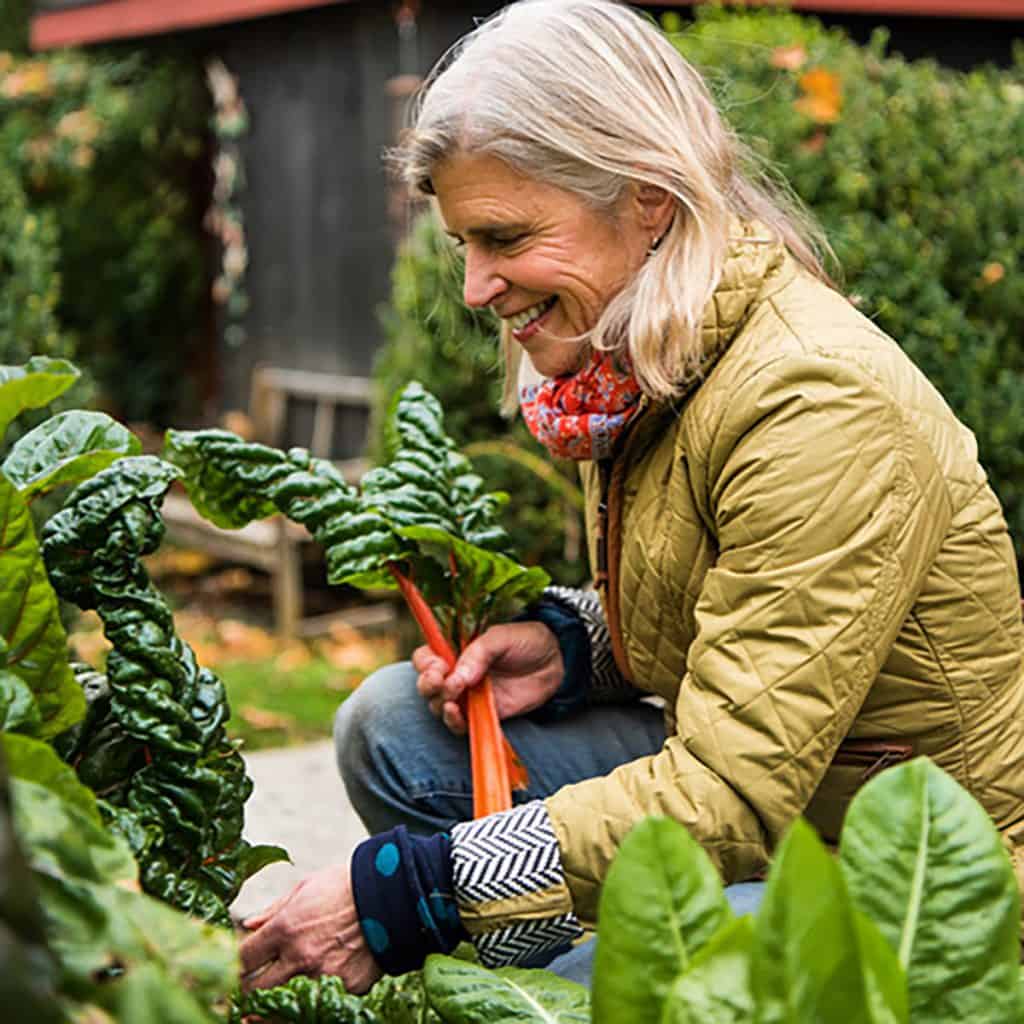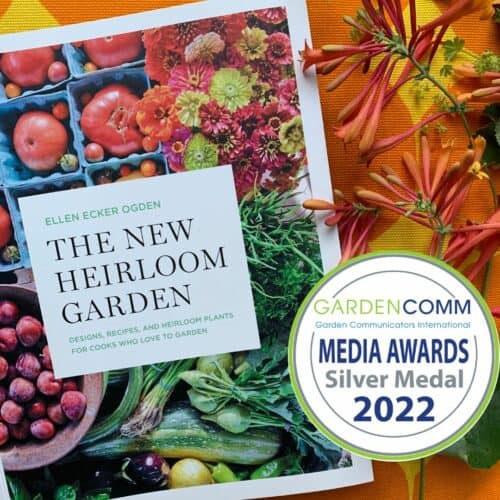
Why a Kitchen Garden? Because growing food truly matters. Maybe it’s a small plot outside the kitchen door, or a wide open field waiting to be tamed. My books and lectures offer artful designs to make your garden practice both fun and productive.
My garden design style has evolved over several decades, always based on my curiosity to play with color, textures, and flavor. I support rewilding in and around my garden to allow the plants and nature to thrive. Join me on the journey to more artful kitchen gardening, and better health for you, your family, and the planet.
“With charming hand-drawn planting plans, bright color photos, and tempting recipes. Ms. Ogden’s book arms wannabe gardeners with all the tools to plan a productive garden before seeds ever meet the ground.” – Wall Street Journal
“There’s no reason a vegetable garden must be an eyesore, banished to the corner by the garage. The Complete Kitchen Garden combines design advice, garden wisdom, and recipes.” –The Chicago Tribune
“Ogden’s recipes zero in on the freshest possible ingredients. If you don’t have a garden when you crack this book open, you’ll be ordering seeds by the time you put it down.” – New York Times Book Review

Garden musings, what I’m digging (literally and figuratively) and some great garden tips are all part of my letters from the garden, sent biweekly straight to your email inbox. Subscribe here.
Discover the art of kitchen gardening with me! Over the years, my passion for color, texture, and flavor has shaped my garden design.